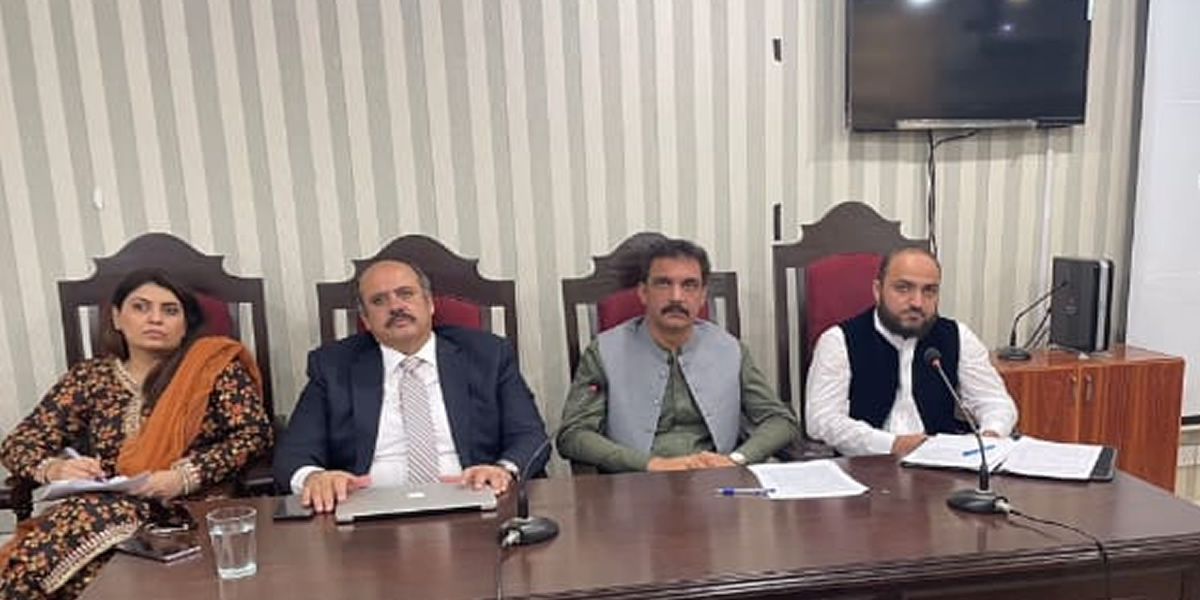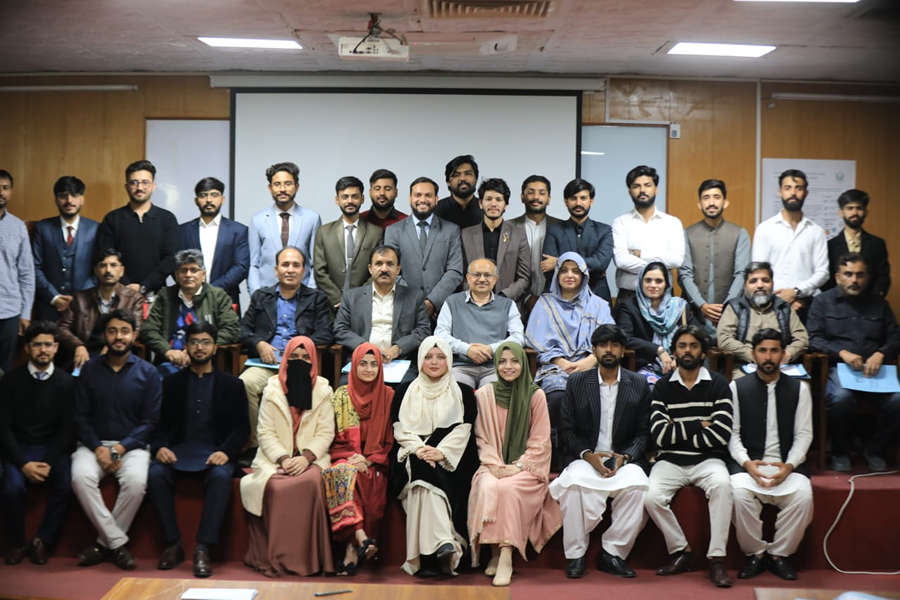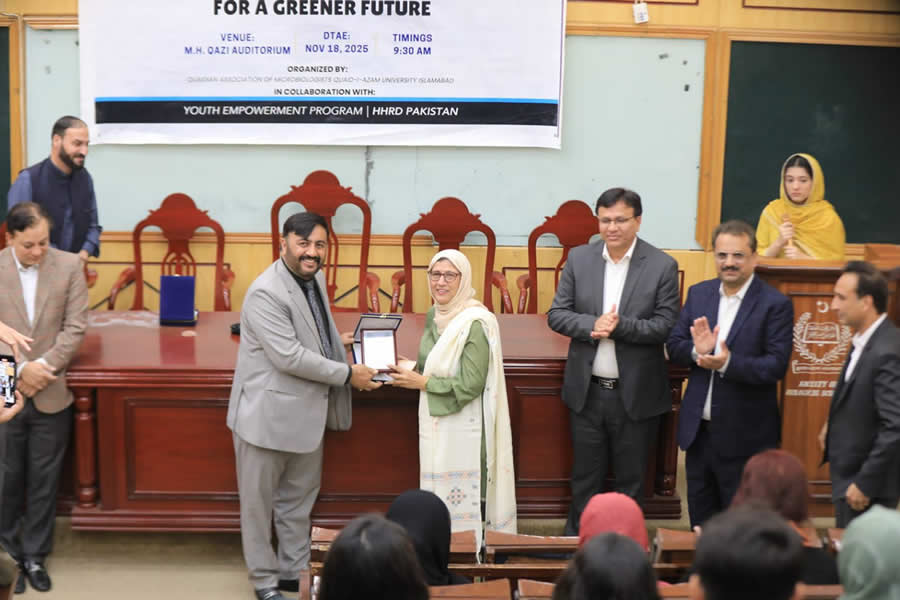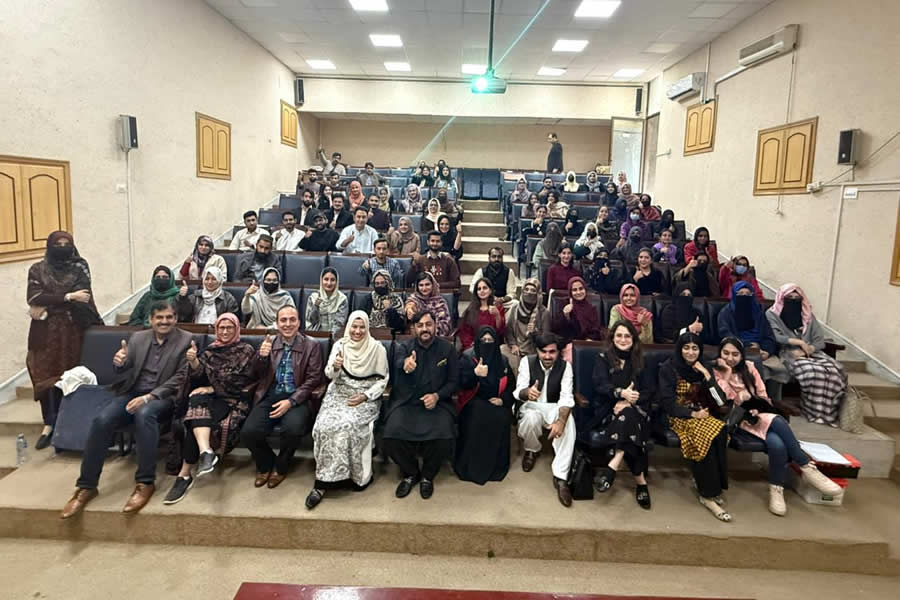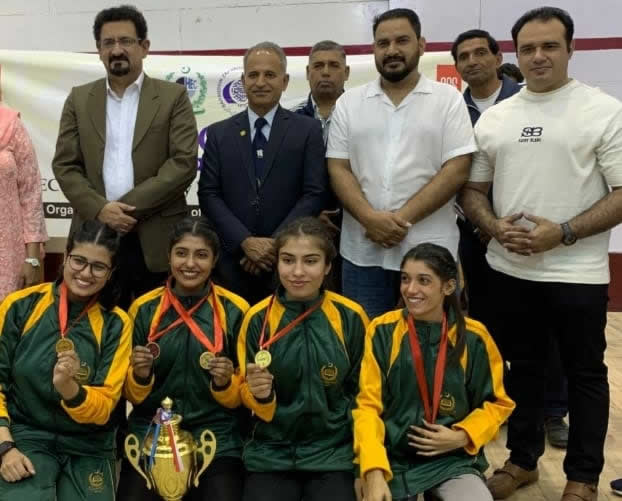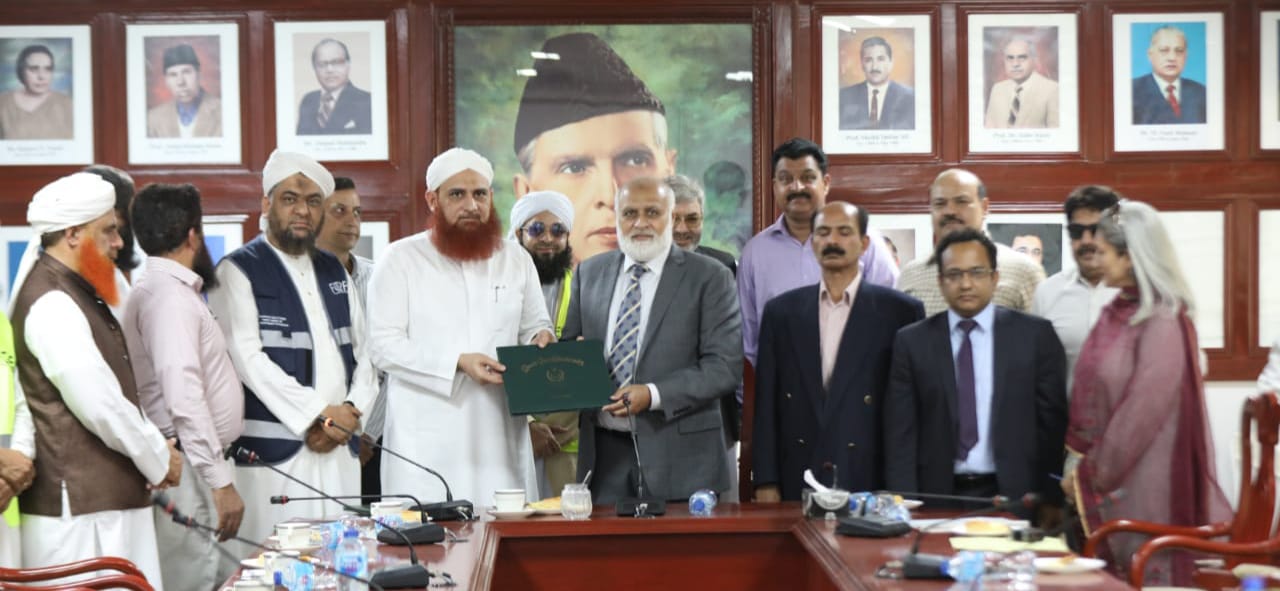Conference Report Afghanistan’s Situation: Impact on Regional Security and Development
A one-day conference (hybrid mode) titled “Afghanistan’s Situation: Impact on Regional Security and Development” was organized jointly by Konrad Adenauer Stiftung (KAS) and the School of Politics and International Relations (SPIR), Quaid-i-Azam University, Islamabad, on 13th July 2023. Dr. Nazish Mahmood moderated the conference by briefly introducing Pakistan-Afghanistan relations.
Dr. Zafar Nawaz Jaspal, Professor, and Director of SPIR, gave his opening remarks, where he shed light on the past collaborations between KAS and SPIR. He then explained the importance of Afghanistan in terms of mineral, gas, and oil resources and how if economic stability is gained in Afghanistan, this country can act as a significant transit junction of the world through which passes numerous railway networks and gas pipelines connecting countries of South Asia to Central Asia. He contemplated Afghanistan’s significance in global geopolitics.
The conference’s first speaker, Dr. Ellinor Zeino, representative of KAS, presented a German perspective on Afghanistan. She explained the mistakes committed in Afghanistan by the international community that included the lack of inclusion of Afghan people in decision making leading to a lack of sovereignty of Afghan people which ultimately led to corruption, sending in soldiers and weapons together with the humanitarian aid, trying to impose foreign ideas of state building, never managing to reach out to the locals of Afghanistan, and having foreign stakeholders in the country. She also highlighted a few possible solutions, including strengthening people-to-people relations, initiating inter-Afghan dialogue, understanding the needs of locals, and perceiving Afghanistan beyond humanitarian aid.
Sangeen Khan Panozai, a student of International Relations at SPIR from Balochistan, was the conference’s second speaker. He shared his insight on the impact of the Afghanistan situation on Pakistan, particularly Balochistan. He called for revamping the Afghan policies in both Afghanistan and Pakistan. He also explained how the recent Taliban takeover had had a positive impact as well like locals perceive that there has been an increase in cross-border trade between both countries, and in recent times there have been frequent flag meetings between Pakistan and Afghanistan.
The last speaker of the conference was Mr. Faheem Ullah Khan, lecturer SPIR, who emphasized the security concerns of Pakistan in Afghanistan related to the non-recognition of the Durand Line by the Taliban government in Afghanistan and the increased Indian engagement in Afghanistan. He explained the deep-rooted historical, cultural, and ethnic ties between Afghanistan and Pakistan and how both have shared concerns about terrorism and external involvement. He also talked about connectivity and trade through Afghanistan in the region. He called for rehabilitation and reconstruction of Afghanistan to strengthen economic stability, greater regional and international cooperation through OIC on the Afghan situation, constructive engagement of Afghan people and government, and increased humanitarian aid without political biases.
The presentations were followed by the questions-and-answers session in which students, faculty members, and journalists commented and asked pertinent questions from the speakers. The conference ended with a word of thanks and a conclusion of the entire proceeding by Dr. Nazish Mahmood.
 House Building/Car/Motorcycle/Cycle Advance (
House Building/Car/Motorcycle/Cycle Advance (

